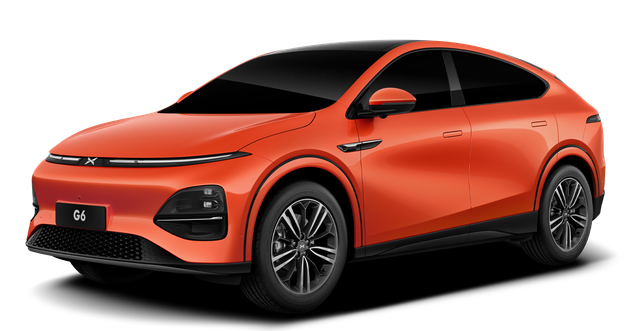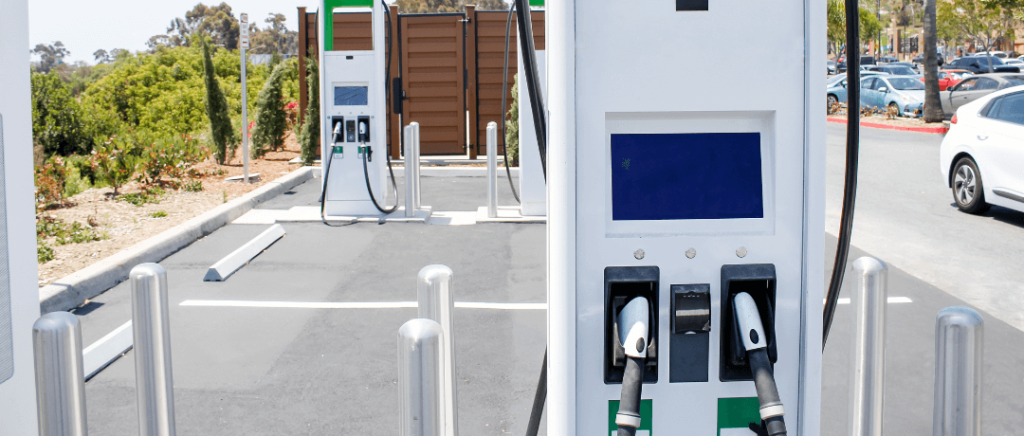Why switch your vehicle fleet to electric?
Switching to electric vehicles is a real opportunity for companies to save money and reduce their carbon footprint, while taking advantage of government subsidies to acquire your vehicles at a lower price. Now is the time to invest in electric vehicles, to prepare for the future and to take a step towards a more environmentally-friendly world.
Reduce the ecological impact of your structure
Going electric means greater energy efficiency and reduced greenhouse gas emissions. Electric fleets can help reduce greenhouse gas and carbon emissions, and support more sustainable practices aimed at slowing climate change. By going electric, you're supporting biodiversity while carrying on business as usual! In fact, according to a study conducted by ADEME, with the support of the FNEn, an electric car emits between 2 and 3 times less CO2 than a combustion-powered car, taking into account its entire life cycle. Yes, you read that right: contrary to many preconceived ideas, electric cars are really a clean vehicle, even when electricity and the battery are taken into account.
Numerous aids for companies
According to one study, the final price of an electric vehicle is between 15% and 25% lower than that of a combustion-powered vehicle.
To find out more: TCO (Total cost of Ownership - how to optimize it?
Here are a few examples of support for companies:
- Ecological bonus By adopting an electric vehicle, companies can benefit from an ecological bonus of €6,000 since June 1, 2020.
- Conversion bonus Professionals can also benefit from a conversion bonus of up to €2,500.
- Exxemption from tax on the use of passenger vehicles for economic purposes Businesses investing in electric vehicles also benefit from an exemption from the tax on the use of passenger vehicles for economic purposes.
- Tax deduction on electric vehicle depreciation: Companies subject to corporation tax or income tax under the actual system can benefit from an additional depreciation allowance of 40% of the vehicle's value.
- Exemption from vehicle registration taxDepending on the region, it is also possible to be exempted from registration tax when purchasing an electric vehicle.
- Allowance on benefit in kindAn electric vehicle made available to an employee between January 1, 2020 and December 31, 2022 is eligible for a 50% allowance, capped at €1,800 per year, when calculating the benefit in kind.
FIND OUT MORE - Corporate Social Responsibility: definition and examples
Electric vehicles: future quotas
Article L. 224-10 of the French Environment Code, amended by Article 77 of the LOM law, stipulates that from 2022, all companies managing a fleet of vehicles must acquire a proportion of clean vehicles when renewing their fleet. Only if their fleet comprises more than 100 vehicles and the total authorized laden weight of the vehicles (=PTAC) is less than 3.5 tonnes.
This quota applies only to fleet renewals, and calls for the proportion of clean vehicles to rise from 10% in 2022 to 50% in 2030.
- Here's how the quota has evolved over the years:
- 10% of renewal from January 1, 2022
- 20% of renewal from January 1, 2024
- 35% of renewal from January 1, 2027
- 50% renewal from January 1, 2030.
There is an exception for LCVs (Light Commercial Vehicles) with a GVW of 2.6 tonnes or more. These vehicles will not be affected by the new obligations until January 1, 2023.
A positive, lasting image for your organization
The world is changing, and with it comes new issues, notably that of sustainable development and ecology. In addition to being important for the planet, by going electric you're sending out an image that's in line with your values and commitments. What's more, consumers are increasingly interested in the companies they choose respecting these values. Building up a fleet of eco-friendly vehicles is a way of building a green image, by showing that you care more about the environment.
Read also : Corporate carbon offsetting: instructions for use
The benefits of an electric vehicle fleet: ecology and savings go hand in hand
Switching to an electric vehicle means not only reducing your carbon footprint, but also making significant savings, so you can combine business with pleasure! We've listed the various savings you'll make right here 🙂
Electric vehicle maintenance
Nearly 85% of electric vehicle owners say that combustion vehicles cost more to maintain. This is because an electric vehicle has far fewer items that require a continuous maintenance cycle. For example, an electric vehicle doesn't need engine oil, transmission fluid or spark plugs. All this contributes to a lower total cost of ownership than for a combustion-powered car.
See also : How to maintain your electric car
Electricity: a much lower cost per 100 km and a much more stable price
Companies going electric totally eliminate their need for fuel, which means they'll save money on this front. In fact, it's estimated that 100 km in an electric vehicle costs between €3 and €5, while for internal combustion cars this figure doubles to between €8 and €11 per 100 km. A significant saving if spread over a full year. So, ecology also rhymes with economy.
See also: TCO (Total cost of ownership): how to calculate and optimize it?
Our advice on how to switch your fleet (or part of it) to electric power and manage it properly?
Good support
Good support means choosing the right consulting organization. Experts in electric vehicles will advise you better than people who are in the world of internal combustion vehicles. Because with an electric car, there are several points to take into account, such as itsrange or the right time for effective recharging. Beev can help you decide which vehicles to buy, and advise you on the purchase of your fleet. Our experts are on hand to advise and support you from A to Z, at the best possible price.
Have the tools you need
To reap the full benefits of adding electric vehicles to your fleet, you need the right technology to help managers and owners improve productivity. The aim is to keep the vehicle in service as long as possible. Anything that helps drivers spend more time on the road and not doing other things that aren't part of their job has a positive impact on productivity. Both traditional vehicles and EVs require a platform that enables managers to keep track of the specifics of each type of vehicle. For example, fleet operators need to be able to easily identify the state of charge of each vehicle in order to route, schedule and carry out vehicle recharging correctly.
Don't overlook certain points
It's unthinkable to talk about electric vehicles without mentioning charging stations. Indeed, the purchase of electric vehicles means the installation of charging stations. Beev is also a player in the charging station market, able to support you effectively throughout the purchasing and installation process, in line with your vehicle purchase project, so that everything can work together. If you wish, you can also make your charging stations available to private individuals, by organizing your charging schedule scrupulously, or when your vehicles are not in use (at weekends, for example). In this way, you'll generate additional revenue by setting your own charging prices.
See also: Installing an electric vehicle charging station on your premises
In conclusion
There are a number of important points to bear in mind when managing your fleet of vehicles.
- Be well supported, by professionals familiar with the world of electric vehicles.
- Have the right tools to manage your fleet and get the most out of your vehicle.
- And last but not least, don't neglect important points such as maintenance adapted to electric cars or the installation of recharging stations.
If you would like support in your transition to more environmentally-friendly vehicles, don't hesitate to contact the teams at beev.
































